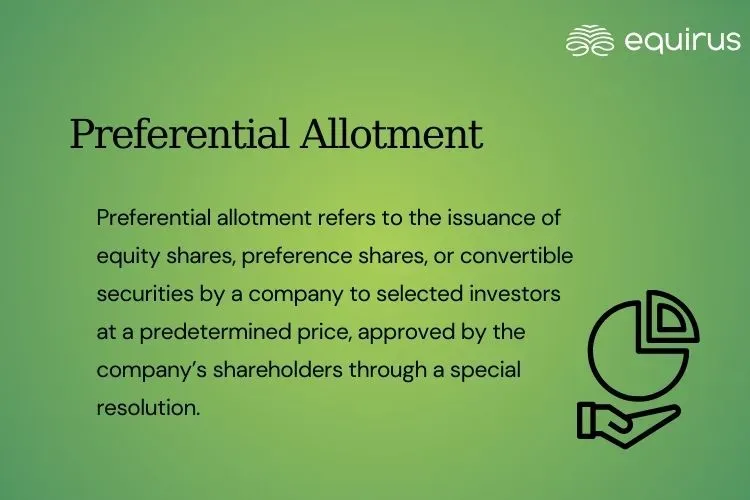Preferential Allotment

Key Highlights
-
Preferential allotment refers to the issuance of equity shares, preference shares, or convertible securities by a company to selected investors at a predetermined price, approved by the company’s shareholders through a special resolution.
-
A listed company may issue equity shares via preferential allotment to a venture capitalist at a premium, raising funds for expansion without undertaking a full public offering.
What is Preferential Allotment?
Preferential allotment refers to the issuance of equity shares, preference shares, or convertible securities by a company to selected investors at a predetermined price, approved by the company’s shareholders through a special resolution.
Key Features
-
Shares are issued at a price decided by the board and shareholders, often reflecting negotiated terms.
-
Used to bring in financial or strategic value, effect debt restructuring, or minimize dilution of current ownership.
-
Requires approval via a special shareholder resolution and adherence to prescribed legal procedures.
-
Completed more rapidly than a public offering and with fewer regulatory hurdles.
Example
A listed company may issue equity shares via preferential allotment to a venture capitalist at a premium, raising funds for expansion without undertaking a full public offering.
Legal Framework
Preferential allotment is governed by Section 62(1)(c) of the Companies Act, 2013 and Rule 13 of Companies (Share Capital and Debentures) Rules, 2014, with additional specific requirements for listed entities under SEBI regulations.
